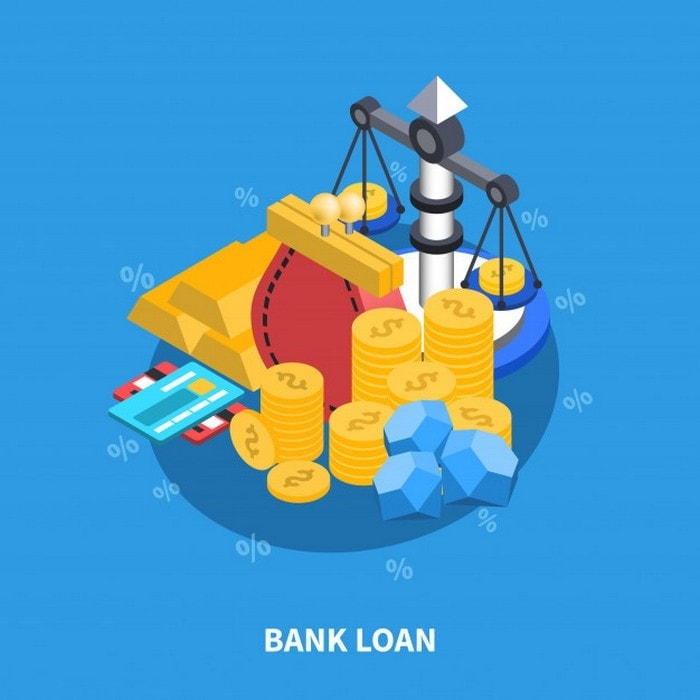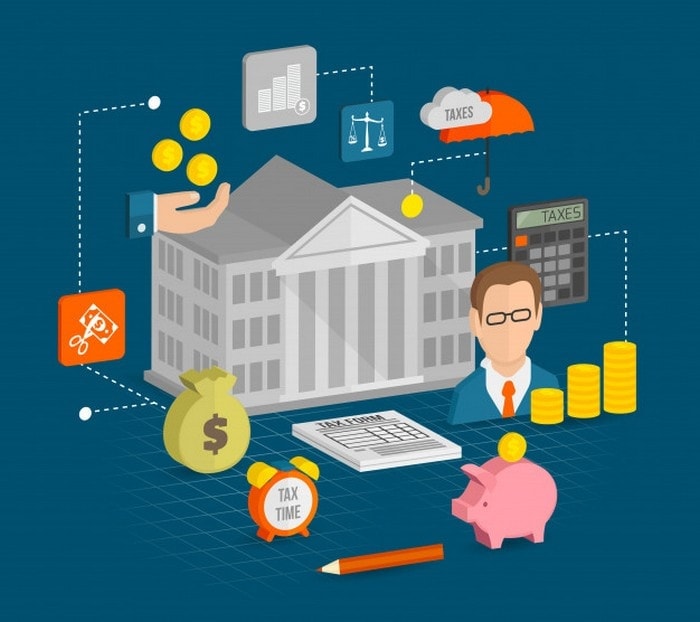Banks play an essential role in industrial work and trade. In a country, the development of a country is measured based on how well the banking sector of the country works.
In the old times, there was no concept of banks and people used to lend money to people who needed it on various interest rates.
Initially, that people worked well as people were less greedy but because of the increase in problem in the simple lending and borrowing system, it became necessary to introduce the formalized system as a result of which banking system were introduced.
The word “bank” is derived from the French word “Banque” or the Italian word “Banca” whose meaning is money exchange table or bench. This term was first used by the European lender who used to display money on the table to lend money to the people.
This was the brief history behind the term bank. A new bank can be defined as the financial institution which deals with the money related transactions such as loans, deposits, saving, etc. and other finance-related services.
In this article, you will learn about the different features of a bank in detail to establish a better understanding of the banking system.
Table of Contents
Features of a bank
#1 Deals with money
The Main Features of a bank is that it deals with all the money-related transactions. For example, you can deposit your money in a bank account to save it securely, and you will also get interested in the money that you will save in the account.
Therefore, it is the easiest way to increase your money without putting it at any risk.
Moreover, if you need the money, then you can borrow it from the bank at a certain interest. For example, you can borrow money from the bank to pay your tuition fees as well as you can also borrow money from the bank you want to buy a car.
However, you are supposed to pay the money back to the bank with interest.
#2 Provide loans
Banks make extra money by providing loans for different products to the loan. The bank makes the extra money by lending money to the eligible person at certain rates.
Nowadays, banks provide loans for various requirements such as study loan, car loan, home loan, personal loans, etc.
Different banks provide different loans at different interest rates. You can compare the interest rates of different banks to get a loan at minimum interest rates.
#3 Identity
As I told you, there are various banks which provide loans at different interest rates. Therefore, each bank has a different name which helps the people to identify it easily and to differentiate with other banks.
Even though the basic services provided by all banks are the same, but each bank tries to provide different interest rates and better services to attract more and more customers.
Therefore, each bank uses a unique bank name and unique tag line to sell their services.
#4 Withdrawal and payment facilities
A Bank provides various payment and withdrawal services to customers so that they can receive their money hassle-free. Customers can withdraw money using cheques and drafts and also from the ATMs installed by the banks at different locations in the city.
They can withdraw money using the debit cards provided by the bank the card is directly linked with the bank and customers can withdraw money anywhere in the world without going to the bank and even without carrying their passbook.
#5 Internet services
Another feature of a Bank is that modern banks are also providing internet services. The development of the internet and its inclusion in the banking sector has made it even more easy for people to carry out various transactions.
Banks are providing online services through their apps. You can pay bills, buy food, go shopping without having cash with you. With the help of banking apps, you can pay for everything online.
Nowadays, more and more banks are taking their business online. It helps in making safe and risks free transactions, and there are fewer chances of stealing taxes. There are specific terms for these types of transactions, such as internet banking and mobile banking.
#6 Business
The only work of banking is not to provide banking services to customers. All banks are involved in the subsidiary businesses to make more money.
Their sole responsibility to provide maximum satisfaction to their customers and to provide them maximum interest rates so that more customers do banking with them.
The money is passed from one hand to another to make a profit.
#7 Increasing functionality
Like other industries banking sector is also focused on enhancing their functionality. Banks have developed from just providing money lending and cash deposit and withdrawal services to providing loans and credit to cashless bank services to internet and mobile banking.
It is one of the fields which are growing fastest. It will not be wrong to assume that banks will be providing more services in the future in addition to internet banking and mobile banking and people’s dependency on the cash will reduce to almost zero percent.
#8 Branches at different locations
Also, the features of a bank include services to its customers wherever they live in the whole world. Most banks are opening their branches the rural part of the country to connect people with the banks and to gain more profit.
People are not required to travel miles like the old times to do banking.
They can visit the nearest branch to them. Each bank is opening more and more branches with the increase in the population so that they can satisfy their customers properly by being near to them.
#9 Bank can be a company or an individual providing banking services
Usually, when you hear about the word bank, you think about a large place where many people are working and dealing with the money transactions.
But it is not wrong to say that a bank can be large organization consist of hundreds of people or it can be a unit managed by a single person.
#10 Commercialized
All the banking services are taking place with a single AIM to make money. You might feel perplexed how bank money by managing others money.
But this is the key. We hand over our money for a small interest on the money deposited by us.
The bank uses our money to lend it to others or by investing it in profitable businesses to make profits. If you think your money is sitting in a banks locker, then you are wrong.
You might have digits of the money mentioned in your passbook, but you might be rotating between one person to another to make more money to the investor.




Bro how earn money then